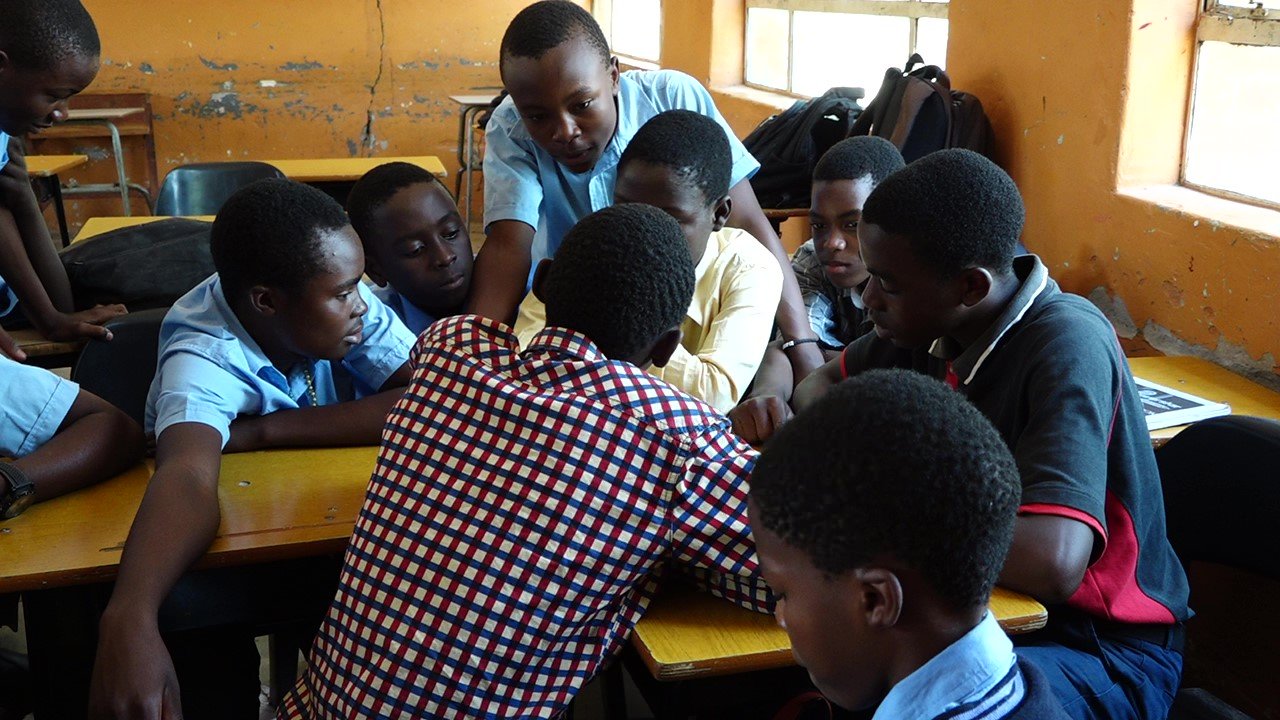
New Horizons for a transformative education model
Despite great progress in the last few years, millions of African children are still denied their right to education. The project New Horizons, implemented in 21 local schools and communities in Malawi, Angola, Zambia, Zimbabwe, South Africa and Mozambique with 18.334 students, 790 teachers and 469 school staff, aims at increasing equal access to quality education for all children in order to promote equity, social justice and inclusion, pursuing improvement of school in terms of its capacity to become a place for the safeguarding and empowerment of children.
In the 6 countries where the project is operating, 3 main challenges have been identified:
- Access to education marked by sharp disparities due to unequal distribution of resources, including public funding to socially excluded communities, low-income students and vulnerable children (orphans, refugees, children with disabilities) driving them into lower income generating activities.
- Quality of education in need to be improved, lack of flexible curricula designed to enable learners with widely varying needs to be included in the learning process – high dropout rates and and/or poor student performances, interpersonal-violence, including gender-based violence
- Education systems in need to be strengthened to scale up inclusive literacy programs and address the challenges of equity, quality, and social justice
To respond to these challenges, the Marist African Mission Commission launched an initiative called New Horizons, which is now supported also by FMSI and Misean Cara. The New Horizons II program will last 3 years (2019-2022) and it is based on 4 main components which will aim at the following results:
1) Increased access to quality education for children and girls from poor and marginalized families in 21 Marist schools in the 6 countries involved, involving local experts already trained in New Horizons 1
2) Strengthened capacity of Marist Schools to uproot violence and discrimination against children in school and community environments by adopting a child rights approach and inclusive teaching methods so to ensure children well-being
3) Increased capacity of school leaders and teachers to drive school improvement towards quality standards of education and sustainability
4) Reinforced the Education system at institutional level in terms of its capacity to advocate children rights.
The Marist African Mission Commission Strategic plan for 2017-2022 and the Regional Vision and Principles for the African Continent aim at raise awareness and implement concrete proposals on Children’s rights and protection in the continent. New Horizons phase 1 had created an avenue for collaborating and networking among all school leaders, while this new phase aims to reach the goal of guarantying equal access to every child and making school a place where students are safe and respected, paying always special attention to individual needs of learners who are at risk of social exclusion and marginalization.
Under the program, one pilot phase in Malawi has been implemented in 2018-2019: 5 schools in Malawi been involved in training activities delivered to 104 school staff (teachers, staff and directors). 2 schools have initiated the income generating projects selected by the project team and the UPR for Malawi has been sent with the first active participation of one Malawian school.
As expertise and contexts differ from school to school in the 6 different countries, all actions will be micro-designed to local needs. The governance of the African Mission Commission will capitalize on this multi-country approach fostering cooperation among schools, setting up a shared approach and removing all obstacles in knowledge exchange at all levels.
New Horizons will also aim at extending outcomes to other non-Marist Schools in countries involved: through building effective partnerships, Marist schools are increasingly able to exert a positive influence on conditions beyond classrooms, improving support to learners and their families.
